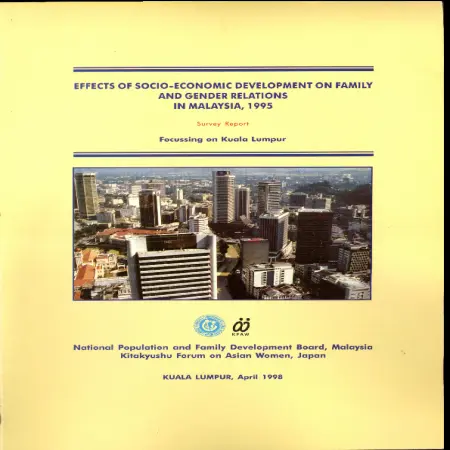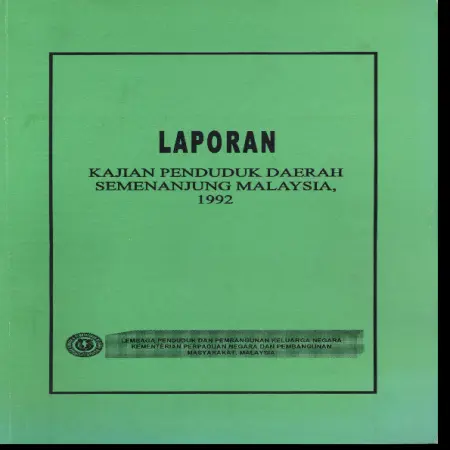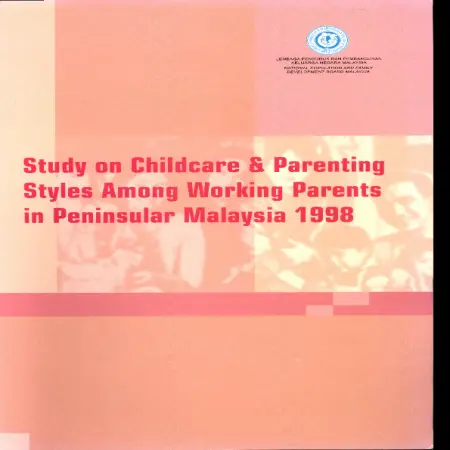Browse by Year
Results for Year : "1998"
Research Report (3)
|
|
Effects of socio-economic development on family and gender relations in Malaysia, 1995: focussing on Kuala Lumpur
Item Type: Research Report
Editor:
Year: 00/04/1998
Abstract: This study attempts to inquire into the effects of socio economic development on families and gender relations in Malaysia societies living in urban areas, focusing on the capital city of Kuala Lumpur. These effects which the research attempts to study are found in the everyday lives of the Malaysian families such as family bonds, family satisfactions, identities, attitudes, norms, conjugal relations, parent and child relations and the family's support network. A total of 1,200 respondents consisting of males and females, aged 18 years and above living in and around Kuala Lumpur and within the Klang Valley had been selected for the survey.
|
|
|
|
|
|
Laporan kajian penduduk Daerah Semenanjung Malaysia, 1992
Item Type: Research Report
Editor:
Year: 00/01/1998
Abstract: This study was conducted to gather information on population and family at sub national levels and to provide a set of data on the trends and patterns and the distribution of life in the state and district. This study covers all eighty-two districts in Peninsular Malaysia. A total of 26,877 male and female respondents were interviewed.
|
|
|
|
|
|
Study on childcare & parenting styles among working parents in Peninsular Malaysia 1998
Item Type: Research Report
Editor:
Year: 00/00/1998
Abstract: The Study on Childcare and Parenting Styles among working Parents in Malaysia is one of the three research issues on the family that has been identified by the Ministry of National Unity and Social Development under the "Pelan Induk Tindakan Sosial (PINTAS)". This survey is timely in view of the many challenges faced by Malaysian families who have been affected directly or indirectly by modernisation, urbanisation and industrialisation as a result of socio-economic development. Female labour force participation has increased from 37 per cent in 1970 to 42 per cent in 1991 and is expected to reach 52 per cent by year 2000. The objectives of the study were: • To study the current situation in childcare arrangements among working parents and to elicit suggestions from them regarding improvements in childcare. • To study parenting styles among working parents and to make recommendations for better parenting practices. • To use findings from the study as an input towards designing strategies and programs for the betterment of families. • To obtain indicators on childcare and parenting for the monitoring of goals and targets in the National Plan of Action on Children.
|
|
|
|







